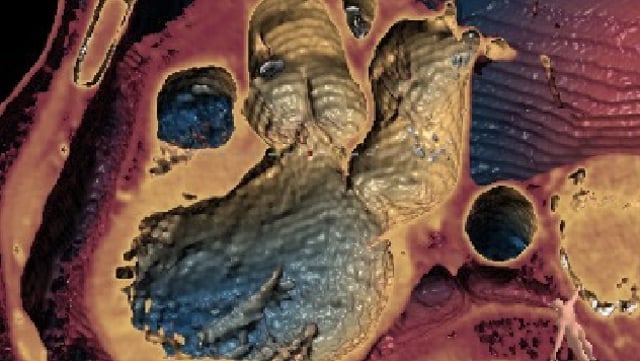3136 results for «2406»
3136 results
More on long-term responsiveness and effectiveness of renal denervation
21 May 2025 – From EuroPCR 2025
This session presents comprehensive data on the long-term responsiveness and effectiveness of renal denervation. Topics include outcomes in patients with chronic kidney disease, arterial stiffness correlations, safety profiles over nine years, and economic evaluations across European healthcare systems.
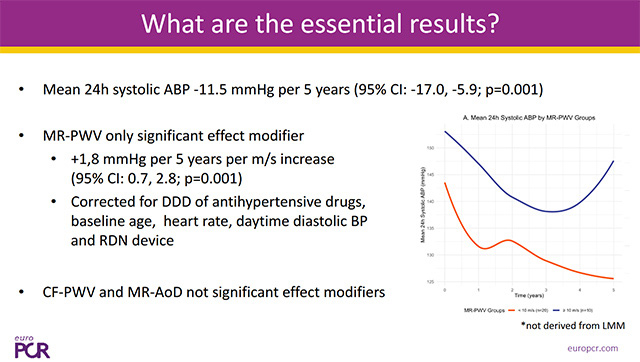
TAV-in-TAV complications
21 May 2025 – From EuroPCR 2025
Focus on the complexities and challenges of TAV-in-TAV procedures in this session. Topics include planning valve-in-valve TAVI for aortic bioprosthetic valve regurgitation, managing anatomical challenges such as left ventricular outflow tract calcium and large annulus, and addressing severe bicuspid valve stenosis with impaired ventricular function. The...
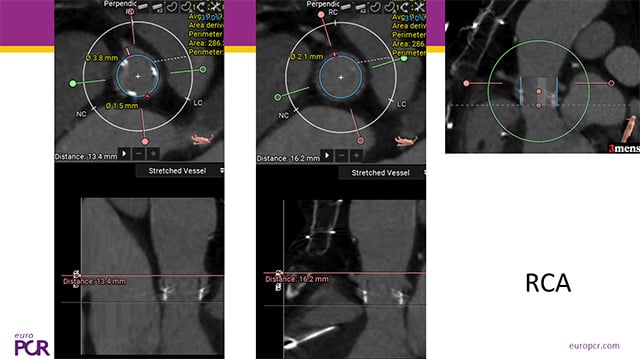
LAA closure and anthrombotic therapies
21 May 2025 – From EuroPCR 2025
Explore contemporary evidence on left atrial appendage (LAA) closure and associated antithrombotic therapies. This session covers strategies for antithrombotic de-escalation, efficacy and safety in patients with anticoagulation contraindications, breakthrough stroke etiology, and anatomical considerations in high-risk atrial fibrillation patients undergoing ablation.
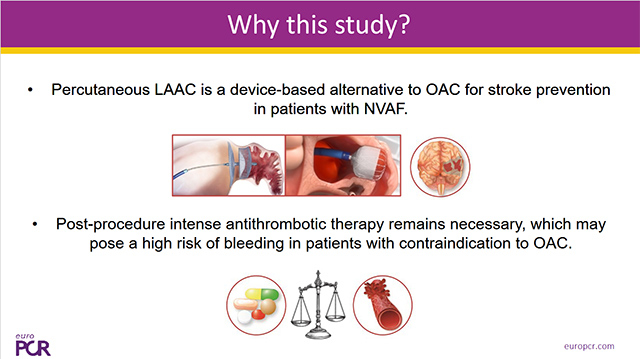
Iatrogenic causes for shock treated with LV support
21 May 2025 – From EuroPCR 2025
Explore the management of iatrogenic causes of cardiogenic shock requiring left ventricular support. This session presents complex cases including shock following Bentall procedures, complications during anesthesia induction in bypass surgery, and strategic approaches to prevent and manage these critical scenarios using LV support devices.
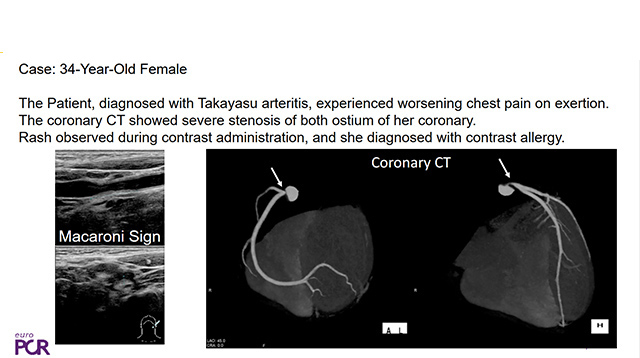
Coronary scaffolds: new developments and applications
21 May 2025 – From EuroPCR 2025
Stay informed on advancements in coronary scaffolds with this session reviewing new developments and applications. Topics include comparative performance of magnesium-based bioresorbable stents, long-term clinical outcomes from the BIOMAG-I and FANTOM BRS studies, and real-world experiences with next-generation thin-strut scaffolds.
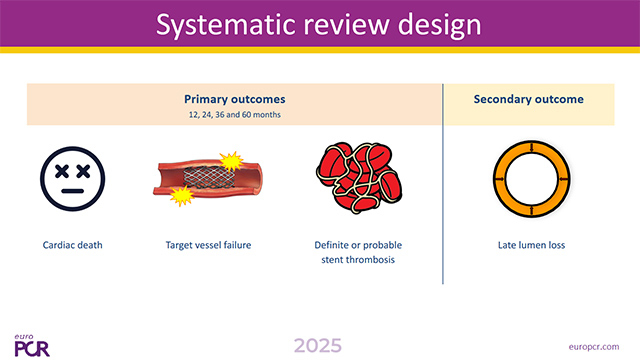
Mitral TEER in challenging scenarios - Part 2
21 May 2025 – From EuroPCR 2025
This session focuses on challenging scenarios encountered during mitral transcatheter edge-to-edge repair (TEER). Learn about management of complications such as haemolysis, device malfunctions, and complex vascular access issues, supported by instructive case presentations including bailout strategies in cardiogenic shock and infective endocarditis.
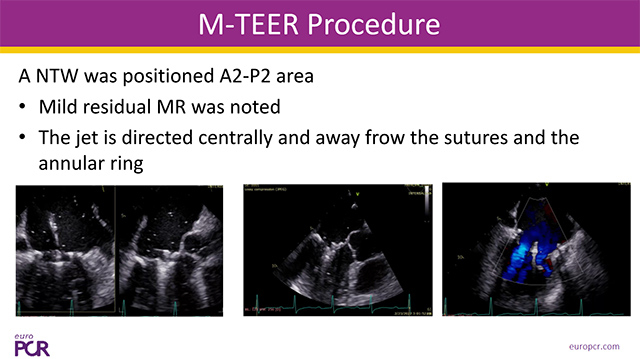
Imaging-based strategies for complication management in STEMI
21 May 2025 – From EuroPCR 2025
Discover imaging-based strategies to manage complications during STEMI interventions. This session discusses diagnostic clues such as spasm, stuck devices, and slow flow, and illustrates complex scenarios including extreme stent challenges and application of CTO techniques to STEMI cases for optimized outcomes.
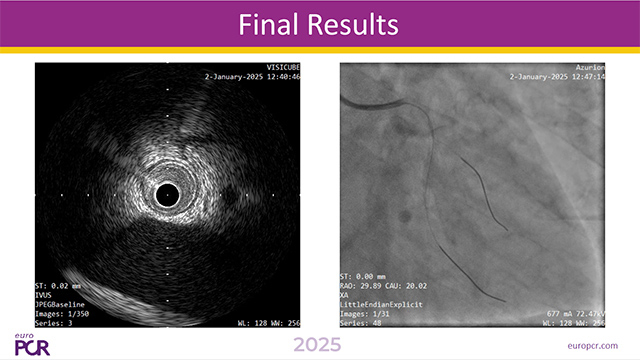
Complication management during mitral TEER procedures
21 May 2025 – From EuroPCR 2025
Explore complex case scenarios of complication management during mitral TEER procedures. This session covers haemodynamic challenges, thrombotic events, device malfunctions, and rare embolisation incidents, providing practical insights into effective bailout techniques and procedural problem-solving.
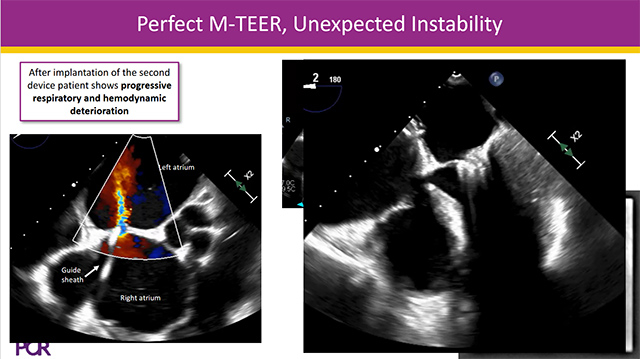
Major Late-Breaking Trials from EuroPCR 2025
21 May 2025 – From EuroPCR 2025
Discover major late-breaking trials from EuroPCR 2025 in this session presenting pivotal study data. Highlights include meta-analyses from the PROTECTED TAVR and BHF PROTECT-TAVI studies, angiography versus physiology-guided PCI during TAVI (FAITAVI trial), and novel antiplatelet strategies following drug-coated stent implantation in acute coronary syndrome, with...
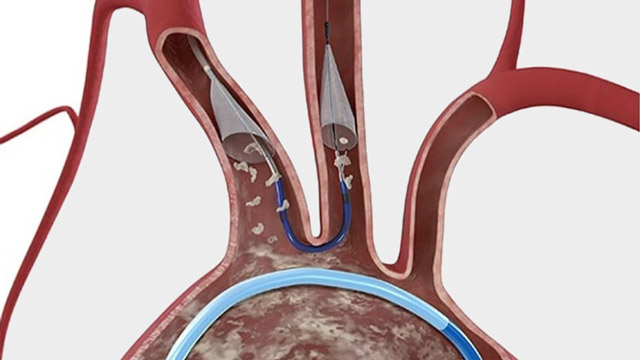
TAVI for aortic regurgitation: on-label and off-label use
21 May 2025 – From EuroPCR 2025
This session reviews on-label and off-label applications of transcatheter aortic valve implantation (TAVI) for treating aortic regurgitation. Examine complex cases including TAVI in patients with aortic dissection, cardiogenic shock, and valve-in-valve interventions, highlighting innovative procedural approaches and bailout strategies.
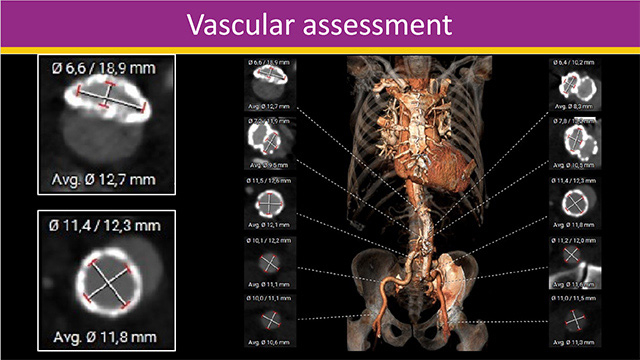
Treatment dilemmas in STEMI patients with multivessel disease
21 May 2025 – From EuroPCR 2025
Address treatment dilemmas in STEMI patients with multivessel disease through this session focused on imaging and physiology-guided revascularisation strategies. Learn optimal approaches for cases with CABG indications, and timing considerations for non-culprit vessel revascularisation during hospital admission or later stages, supported by illustrative clinical cases.
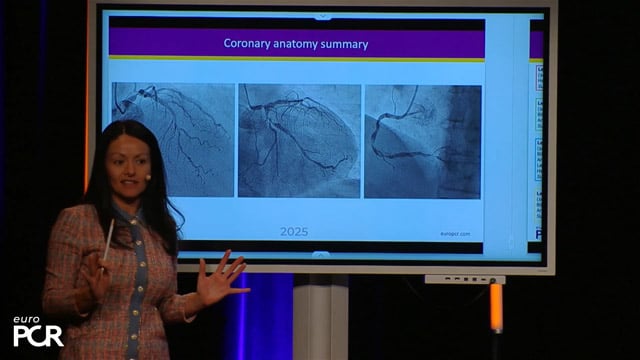
Stent technologies, last evidence in coronary interventions
21 May 2025 – From EuroPCR 2025
Update your knowledge on the latest stent technologies and clinical evidence in coronary interventions. This session reviews long-term outcomes of resorbable magnesium scaffolds, seven-year data from the COMPARE-ABSORB trial, bioadaptor versus stent comparisons, dual therapy sirolimus-eluting versus biolimus-eluting stents, and randomized trials on direct stenting versus...
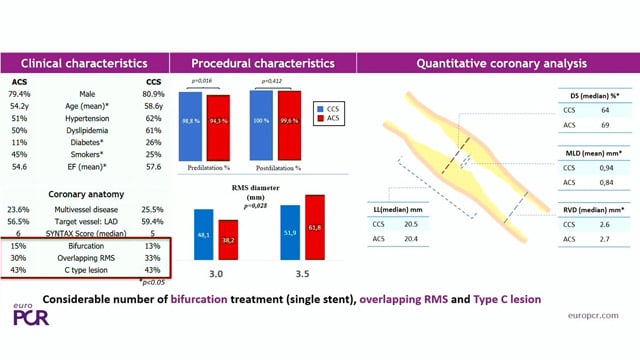
Case-based learning on different aspects of transcatheter LAA closure
21 May 2025 – From EuroPCR 2025
Engage in case-based learning focused on transcatheter left atrial appendage (LAA) closure. This session covers safe transseptal puncture techniques, state-of-the-art standard LAA closure procedures, management of challenging LAA anatomies, and optimization of post-procedure antithrombotic therapy in high-risk patients.
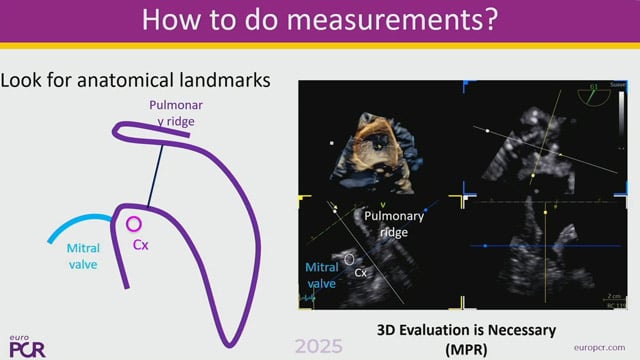
Management of high-risk left main lesion
21 May 2025 – From EuroPCR 2025
Focus on managing high-risk left main coronary lesions with this session featuring complex cases such as thrombotic lesions, calcified distal left main PCI with orbital atherectomy and IVUS guidance, and advanced stenting techniques. Learn practical approaches for challenging anatomical and clinical scenarios to optimize patient outcomes.

Choices, choices: a global perspective on multiple modalities for calcium modification
21 May 2025 – From EuroPCR 2025
Gain a global perspective on multiple modalities for calcium modification in coronary interventions. This session reviews comparative analyses of orbital, shockwave, rotational atherectomy, and cutting balloons, explores evolving rotational atherectomy practices in the era of intravascular lithotripsy, and presents preliminary data from international registries on coronary...
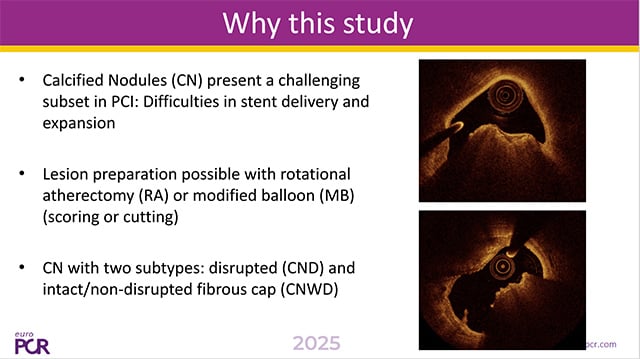
Did danger shock change my practice?
21 May 2025 – From EuroPCR 2025
Reflect on how contemporary management of cardiogenic shock has evolved through this session. Review collaborative strategies, challenging clinical cases involving STEMI, multivessel disease, refractory shock, spontaneous coronary artery dissection, and the critical role of intracoronary imaging in guiding interventional decisions.
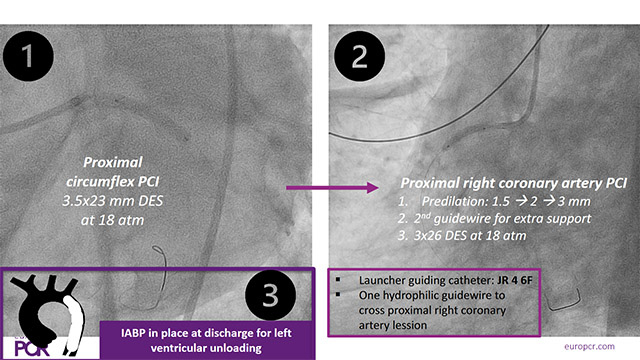
Novel devices for edge-to-edge mitral repair
21 May 2025 – From EuroPCR 2025
Discover novel devices advancing transcatheter edge-to-edge mitral valve repair (TEER). This session presents clinical experiences with cost-effective and uniquely designed TEER systems for patients with degenerative mitral regurgitation and heart failure, including first-in-man applications and case series demonstrating safety and efficacy.
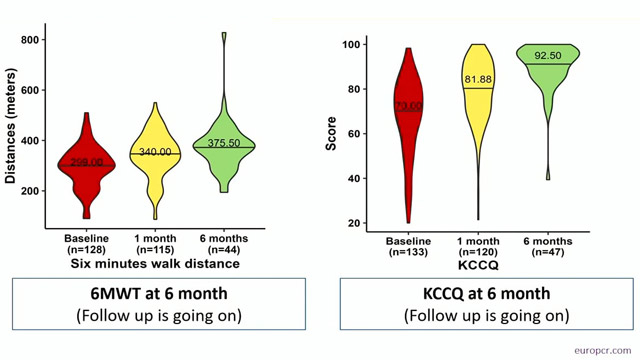
Strategies in treating double CTO scenarios
21 May 2025 – From EuroPCR 2025
Navigate complex double chronic total occlusion (CTO) scenarios with this session that emphasizes thorough lesion qualification and innovative techniques. Learn strategies including management of ambiguous proximal caps, sequential vessel revascularization, and advanced tools like snaring and deflection to optimize procedural success.
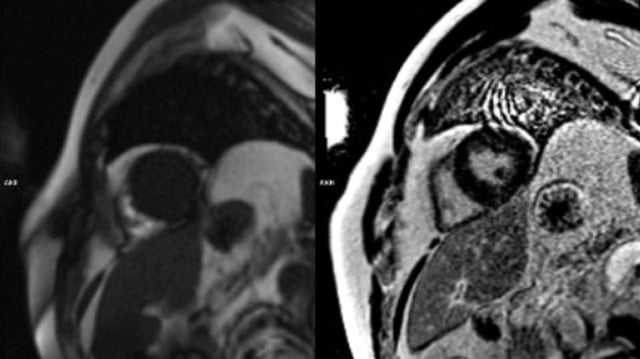
DCB PCI: are we ready for complex de novo lesions?
21 May 2025 – From EuroPCR 2025
Evaluate the readiness of drug-coated balloon (DCB) therapy for complex de novo coronary lesions. This session reviews comparative outcomes of DCB versus drug-eluting stents (DES) across CHIP risk categories, impacts of diabetes, long-term follow-up data in calcified lesions and left main bifurcations, and treatment of in-stent...
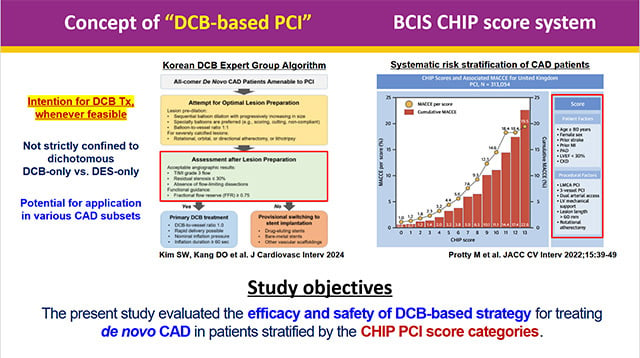
TAVI for aortic regurgitation: off-label use
21 May 2025 – From EuroPCR 2025
Explore the complexities and off-label challenges of transcatheter aortic valve implantation (TAVI) in patients with severe pure aortic regurgitation. This session highlights the bold strategies, complication management, and innovative use of the Octacor valve in this demanding clinical scenario, providing valuable insights into navigating a difficult...
